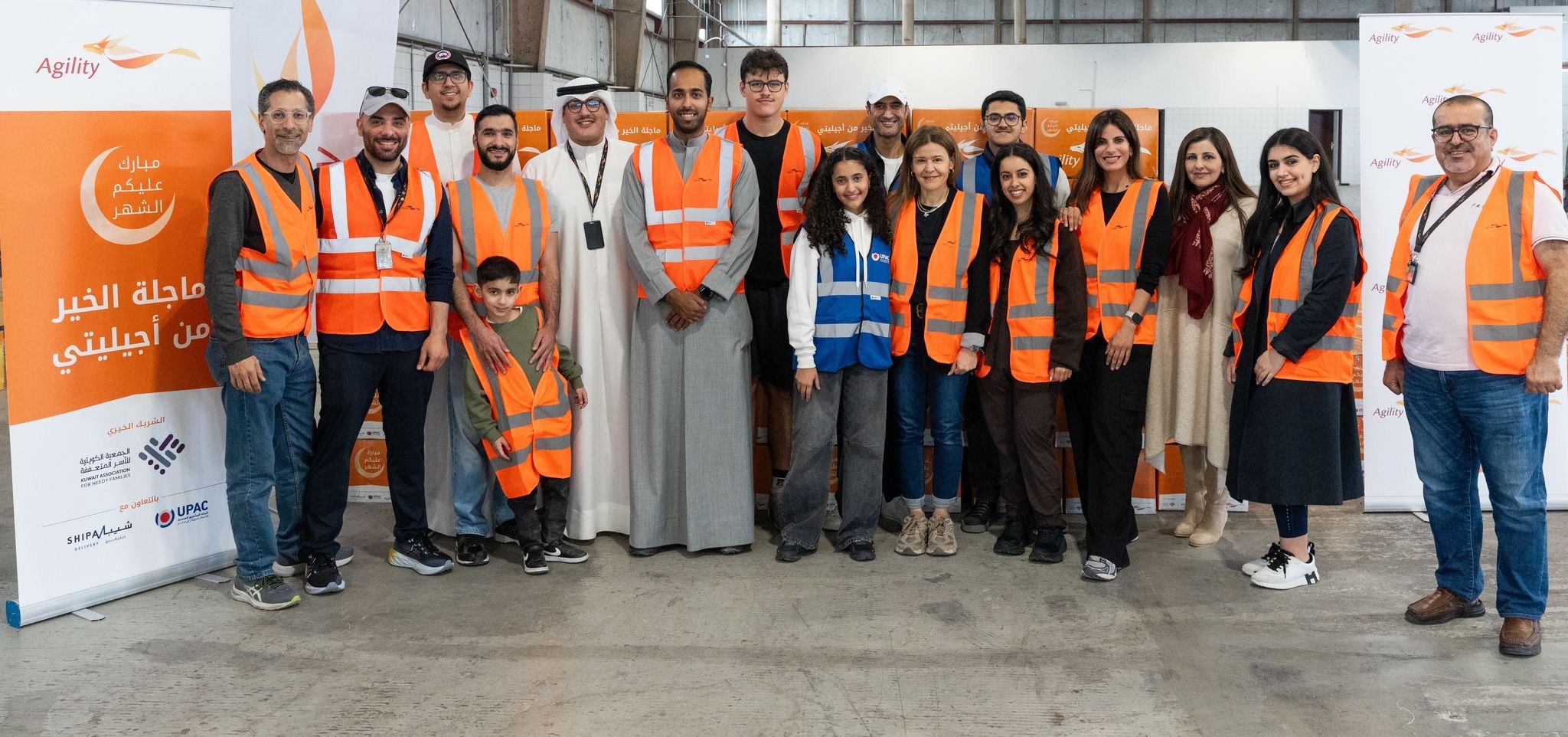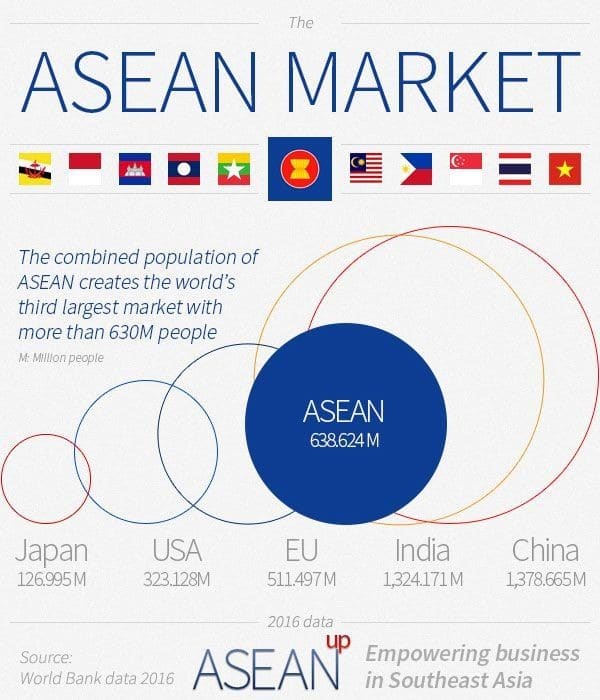Leveraging digital tools in the age of supply chain disruption

Kuwait-based Agility Logistics Parks customers can log-on to view contracts and make payments.
UK MOD personnel can log-in to the GRMS portal to schedule household relocation shipments.
Kuwait-based Agility Logistics Parks customers can log-on to view contracts and make payments.
UK MOD personnel can log-in to the GRMS portal to schedule household relocation shipments.
As the World Economic Forum comes to Ha Noi for this year’s ASEAN meeting, we’re reminded of how far Viet Nam has come since the country first hosted the gathering in 2010. Viet Nam experienced over 6% GDP growth last year, but it’s not the only country in the region with a remarkable growth story.
Indonesia, Thailand, Myanmar, the Philippines and Cambodia – countries that all followed in the footsteps of Viet Nam as first-time hosts of WEF’s annual Asian regional meeting – along with others in the ASEAN bloc, are experiencing strong growth too. The 10 member states are expected to generate GDP growth rates between 3% and 8% over 2017-2021.
While the growth of these individual countries is impressive, the real success story belongs to the region. ASEAN has long heeded the connectivity imperative, and the benefits of regional cooperation and economic integration, through initiatives such as the ASEAN Economic Community (AEC), are paying dividends. ASEAN commands a combined GDP of about $2.4 trillion, and GDP per capita has increased by 63.2% from 2007 to 2015. If it were a single country, it would be among the top 10 economic powers in the world. To further drive growth, ASEAN and its six strategic partners will come together in November for the hotly anticipated signing of the Regional Comprehensive Economic Partnership. This will create the world’s largest free-trade area, representing nearly 30% of global GDP, and demonstrates ASEAN’s commitment to removing barriers to trade and expanding market access both within the region and with its partners.
With a population of over 600 million, ASEAN is the world’s third-largest market. It also offers the third-largest labour force, behind China and India, and has some 67 million households that are part of the “consuming class”, a figure that could almost double to 125 million by 2025. Between 2007 and 2014, ASEAN trade increased by a value of nearly $1 trillion. While nearly a quarter (24%) of trade was within the region, this was followed by trade with China (14%), Europe (10%), Japan (9%) and the United States (8%). During the same period, foreign direct investment rose from $85 billion to $136 billion. As nations elsewhere redefine their approach to international trade, one thing’s for sure: ASEAN is open for global business.
While significant steps have been made to enhance the free flow of goods, services, investments and people, new challenges lie ahead. The technological advancements brought on by the Fourth Industrial Revolution (4IR) are placing new demands on governments and businesses across the region. However, the 4IR also presents great opportunity, if member states can respond to its challenges with speed, flexibility and agility in order to make these new technologies part of its success. Entrepreneurship could play a key role here. SMEs are the backbone of local economies across ASEAN, and often the largest source of local employment across all economic sectors. In countries such as Thailand and Viet Nam, for example, they account for nearly 99% of all registered businesses and employ more than 70% of the workforce. To unleash this potential, the region must ensure that policy reflects the interests of SMEs, affording them the best environment for growth.
E-commerce is a prime example of how 4IR technologies are disrupting traditional sectors. While e-commerce remains relatively underdeveloped in ASEAN today, accounting for less than 1% of total retail sales, this will soon change as internet penetration spreads and the region’s consumer base continues to grow. Given this potential, large local providers such as Lazada and Tokopedia are competing for market share with global players. With SMEs poised to play such a key role in the region’s success, it will be crucial for governments to ensure the internet infrastructure they require is in place, so that entrepreneurs can future-proof their businesses and actively participate in e-trade.

4IR technologies are also enabling logistics providers to take supply chains to the next level in terms of speed and accessibility. This is contributing to the rise of e-commerce, but also driving business more broadly across the region. Drones are operating in warehouses, artificial intelligence is automating processes and blockchain has the potential to transform decentralised supply-chain functions. Logistics providers are also offering online freight forwarding platforms that ease the process of doing business for SMEs, both within the region and more globally. Unsurprisingly, global logistics hub Singapore is leading the way in adoption of technologies into the supply chain, through its Smart Logistics initiative.
However, to truly ascend the global value chain, ASEAN needs to look beyond trade facilitation and advancements in technology. In reality, the very 4IR technologies that are driving growth are at the same time disrupting the region’s traditional strengths in low-end manufacturing in the form of automation, robotics and 3D printing.
Governments and businesses need agile approaches to upgrade education, R&D, lifelong learning and skills development. This will create the necessary conditions for ASEAN to better close income gaps, create employment, support SMEs, expand the pool of knowledge workers and – ultimately – to rise in global value chains. Therefore, preparing the capable and young workforce for new realities must happen with close coordination between industry, governments and civil society. These will complement the tremendous efforts leaders are already making in supporting cross-border trade and enhancing mobility.
While there is much for the region to consider as it sets its sights on ascending the global value chain, what is clear is that now is the time for ASEAN to shine. The theme of this year’s World Economic Forum summit, ASEAN 4.0: Entrepreneurship and the Fourth Industrial Revolution, could not be a more timely one.
Written by Sushant Palakurthi Rao, Head of Global Partnerships, Agility